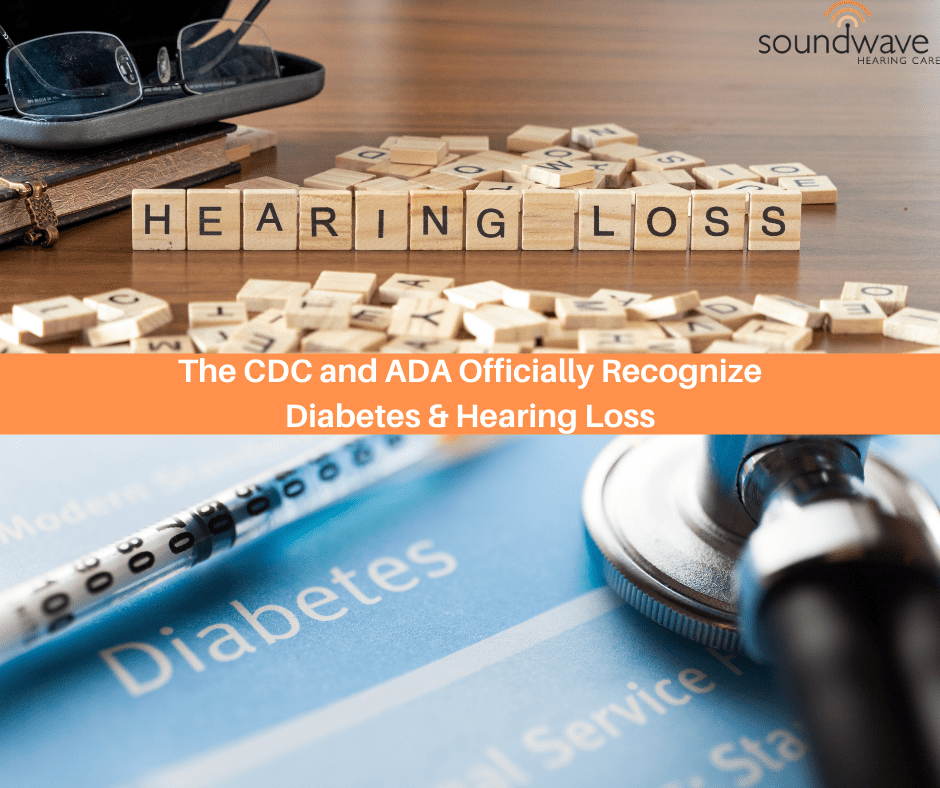Blog
Blog
Uncovering the link between type two diabetes and hearing loss

Do you or someone you know have type two diabetes? Did you know this condition is linked to hearing loss and deafness? Here’s an overview of how this disease can impact your hearing.
What causes hearing loss in people with type two diabetes?
Diabetic neuropathy is a type of nerve damage that’s caused by diabetes. Over time, unmanaged blood sugar levels can damage the nerves throughout the entire body by restricting blood flow. Although diabetic neuropathy most often affects the nerves in the hands and feet, it can also damage the small blood vessels and auditory nerves in the inner ear, leading to sensorineural hearing loss.
In fact, recent diabetes and hearing loss research indicates that individuals with untreated type two diabetes are twice as likely to develop mild to moderate sensorineural hearing loss than those without the disease.
What are the symptoms of hearing loss?
Sensorineural hearing loss often happens gradually. Therefore, the symptoms may go unnoticed. In fact, friends, family members and colleagues are typically the first to notice changes in a person’s hearing. Some symptoms of hearing loss include:
- Frequently asking others to repeat themselves or speak more slowly and loudly
- Finding it difficult to follow conversations that involve more than two people
- Feeling off-balance or dizzy
- Finding it difficult to hear in noisy places such as restaurants and museums
- Ringing in the ears
- Turning up the TV or radio volume and it’s too loud for others who are nearby
- Finding it hard to hear consonants and high-pitched sounds
Although hearing loss typically happens over several years, some individuals with diabetes experience sudden hearing loss. Therefore, if you notice any abrupt changes to your hearing, you should speak to your doctor or visit an audiologist as soon as possible.
What types of treatment are available for hearing loss?
Sensorineural hearing loss is permanent. However, there are several things you can do to retain your remaining capacity to hear, including:
- Keep your blood sugar close to target levels by eating healthy, staying hydrated and exercising regularly
- Turn down the volume on electronic devices, such as your smartphone, TV and car radio
- Protect your ears from loud noises by wearing earplugs or earmuffs, especially if you regularly hunt, use power tools or attend concerts and live sporting events
- Visit an audiologist for a yearly hearing test
At Soundwave Hearing Care in Calgary, we carry a wide variety of hearing aids and assistive listening devices to help you hear better.
Hearing specialists in Alberta
Do you have type two diabetes? Have you noticed changes in your hearing? If so, visit an audiologist at Soundwave Hearing Care. We offer comprehensive auditory processing assessments and hearing tests. We’ll help you pinpoint the cause of your hearing loss and recommend a custom solution that’s tailored to your needs. For more information about our products and services, please contact us at one of our locations in Calgary, Lethbridge, High River and Grande Prairie.
All the blogs are reviewed and edited by our clinic's lead audiologist, Dr. Anne Wooliams. Dr. Woolliams is an experienced audiologist specialized in pediatric audiology, auditory processing, and tinnitus/sound sensitivity therapy. She is dedicated to providing top-notch hearing care and helping her clients improve their language and communication abilities. Dr. Woolliams' expertise in literature and linguistics, combined with her passion for helping people improve their language and communication, make her an incredibly valuable asset in the field of audiology. Learn more about Dr. Woolliams.
